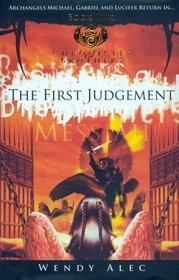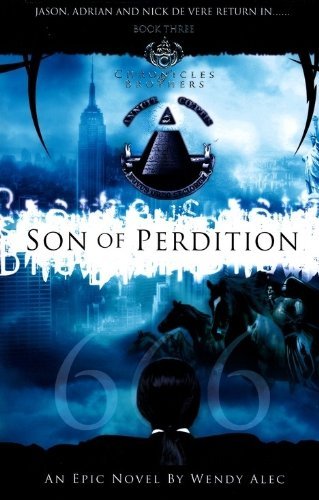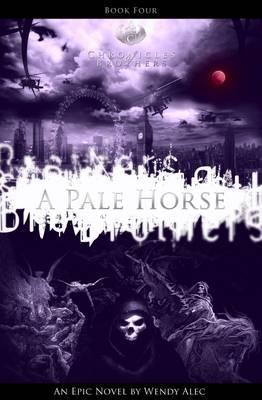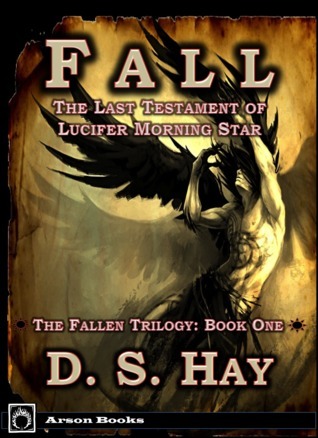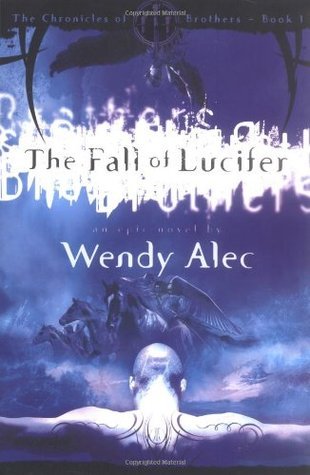
The Fall of Lucifer
Book Description
When heaven's brilliance collides with the shadows of betrayal, a war of cosmic proportions ignites. As Lucifer, the Morning Star, grapples with his ambition and defiance, the celestial realm trembles beneath the weight of destiny and desire. Loyalty fractures, friendships shatter, and forces of darkness loom as celestial beings take sides in a battle for supremacy. Desires clash, secrets unravel, and the line between good and evil blurs in a breathtaking tale of rebellion. Will light triumph over darkness, or has the universe already begun its descent into chaos? The fate of creation hangs by a thread—can love conquer all, or will it condemn them all?
Quick Book Summary
"The Fall of Lucifer" by Wendy Alec reimagines the cosmic origins of good and evil through the eyes of the archangels—Lucifer, Michael, and Gabriel—as they inhabit the celestial realm of heaven. Lucifer, chosen and exalted as the Morning Star, is consumed by pride and ambition, setting forth a fateful chain of events that fractures celestial harmony. As Lucifer’s jealousy toward the Creator’s new vision for humankind escalates, he orchestrates a rebellion, drawing many angels into his web of dissent and conspiracies. The novel weaves themes of loyalty, betrayal, brotherhood, and the consequences of free will, building to a war that tears the fabric of heaven asunder. Caught between love, loyalty, and destiny, each being must choose a side as the roots of evil and redemption are sown for all creation.
Summary of Key Ideas
Table of Contents
The Origins of Pride and Rebellion
The novel begins by painting a resplendent portrait of heaven, where the archangels—Lucifer, Michael, and Gabriel—are united in purpose and devotion to the Creator. Lucifer, known as the Morning Star, is depicted as radiant, gifted, and beloved, occupying a position of high privilege. However, beneath the brilliance of his calling lies an undercurrent of disquiet. Lucifer’s pride in his talents slowly festers into dissatisfaction when the Creator shares His new vision for humankind, sparking the first seeds of jealousy and discontent within the angelic order.
Brotherhood and Betrayal Among Angels
As Lucifer’s internal struggle intensifies, he becomes isolated from his brothers. Michael remains steadfast and devoted, while Gabriel seeks harmony, yet both are powerless to quell Lucifer’s growing resentment. Trusted friends and heavenly hosts grow uncertain as Lucifer begins to question the very nature of loyalty and the justice of the Creator’s plans. Subtle manipulations and whispered doubts take root, initiating the fracture of sacred bonds and the first hints of celestial rebellion in what was once a unified realm.
The Consequences of Free Will
The narrative escalates as Lucifer’s defiance becomes an outright rebellion. Driven by ambition, he convinces a contingent of angels to challenge the divine order, igniting a war in heaven. The bonds of brotherhood are tested to the breaking point as Michael leads loyal hosts against the insurgents. The struggle becomes a collision of light and darkness, order and chaos, with the fate of all creation suspended in the balance. The spiritual warfare is as psychological as it is physical, where every choice weighs heavily on the destiny of angelic and mortal realms alike.
Light Versus Darkness on a Cosmic Scale
Amidst the chaos, the concept of free will emerges as the pivotal force. The Creator’s gift of choice to both angels and, soon, to humanity is double-edged—promising the heights of love and the depths of betrayal. Each celestial being must wrestle with their desires and the consequences of their decisions, illuminating the costs of freedom, loyalty, and pride. This theme echoes throughout the cosmic struggle, shaping individual destinies and the wider history of creation.
The Eternal Impact of Love and Sacrifice
The climax and aftermath of the rebellion set the stage for the eternal struggle between good and evil. Lucifer, now the enemy of heaven, is cast out, but his lingering influence marks both realms with the perpetual possibility of darkness. Yet, hope remains in the sacrificial love and unwavering loyalty shown by those who resisted temptation. In the ruined aftermath, the novel invites readers to contemplate whether love can redeem—and ultimately conquer—the destructive power of pride and betrayal, leaving the fate of creation entwined with both risk and promise.
Download This Summary
Get a free PDF of this summary instantly — no email required.


